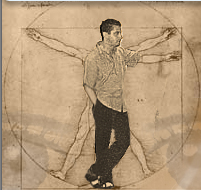| Home > Papers > Epistemology |
|


| Sitemap |
| Print view |
| Login |
Epistemology
“Knowledge-by-Acquaintance First.” Philosophy and Phenomenological Research, forthcoming.
I consider (sympathetically!) the Russellian idea that all propositional knowledge ("S knows that p") depends asymmentrically on knowledge-by-acquaintance.
“The Limits of Experience: Dogmatism and Moral Epistemology.” Philosophical Issues, forthcoming.
Argues, contra dogmatism and phenomenal conservatism, that experiences do not justify purely in virtue of their phenomenology, but also because, and only when, they are backed by second-order beliefs in their reliability.
“Beatrice Edgell's Myth of the Given.” British Journal for the History of Philosophy, forthcoming.
“Imagination, Modal Knowledge, and Modal Understanding.” Forthcoming in I. Vendrell Ferran and C. Werner (eds.), Imagination and Experience: Philosophical Essays (Routledge).I trace the way the early 20th-century philosopher Beatrice Edgell anticipated Sellars' myth of the given in her criticism of Russell's foundationalist epistemology, in particular his notion of knowledge by acquaintance. (Here is a short dialogue explaining the main ideas.)
Many philosopher have argued recently that the imagination has an important role to play in modal epistemology. I argue that it can't be a role in justifying modal beliefs, because modal beliefs can be justified purely by the exercise of rational capacities. Instead, I argue, the imagination plays an important role in modal understanding, because it constitutes direct grasp of modal propositions.
“The Structure of Phenomenal Justification.” Australasian Journal of Philosophy 2023.
I argue that for dogmatism to be stable it must be extended beyond perception to a whole range of phenomenal experiences, and formulate a general principe underlying all phenomenally based immediate jutification.
“Phenomenal Grounds of Epistemic Value.” Philosophy Compass 2022.
What epistemic value survives in a zombie duplicate of our own? I go over various arguments for the necessity of consciousness to prominent putative epistemic values - justification, truth, acquaintance, and understanding - that suggest those wouldn't survive.
(with Tricia Magalotti.) “Emotion, Epistemic Aessassibility, and Double Intentionality.” Topoi 2022.
We address the following question: why are emotions epistemically assessable even though their formal object is not truth? We show that cognitivist and perceptualist views of emotion don't provide a good answer, and argue instead that it's because (i) emotions are reason-responsive and (ii) reason-reasponsiveness is sufficient for epistemic assessability.
“The Epistemological Challenge of Revisionary Metaphysics.” Philosophers' Imprint 2013.
I present a systematic challenge to the viability of revisionary metaphysics: show me epistemic grounds on which to believe that one revisionary-metaphysical theory in some area is more likely to be true than its competitors.
“A Hesitant Defense of Introspection.” Philosophical Studies 2013.
I (hesitantly) argue that introspection is crucial to cognitive science both in the context of discovery and in the context of justification.
“The Veil of Abstracta.” Philosophical Issues 2011.
I argue that just as the sense-datum theory erected a veil of appearances over the external world, so currently popular accounts of perception in terms of relation to properties erect a veil of abstracta over the concrete world. This is unpacked in terms of the the kind of justification perceptual experiences bestow on beliefs based on them.
(With Terry Horgan.) “Phenomenal Epistemology: What is Consciousness that We may Know It so Well?” Philosophical Issues 2007.
We defend two theses. The first is that there is a kind of knowledge of phenomenal experiences that is infallible. The second is that what explains this limited infallibility is a special feature of phenomenal experiences, namely, a sort of inbuilt awareness of themselves.
“Moore’s Paradox and the Structure of Conscious Belief.” Erkenntnis 2004.
I offer a solution to Moore’ paradox according to which (i) the absurdity of Moorean assertions derives from that of conscious Moorean beliefs and (ii) the absurdity of conscious Moorean beliefs is due to the fact that conscious beliefs are self-representing, in a way that makes Moorean conscious beliefs explicitly self-contradictory.

Tine Melzer, "I have changed my mind"